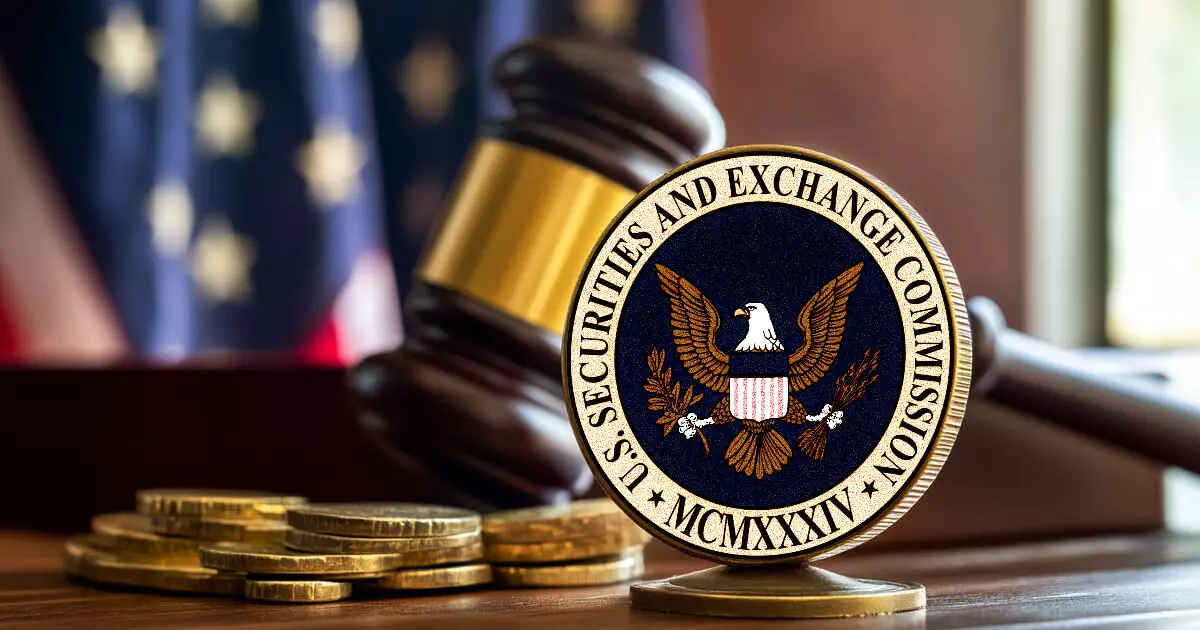On October 10, 2023, the Securities and Exchange Commission (SEC) took significant legal action against Cumberland DRW, a well-known crypto market maker based in Chicago. The SEC’s complaint alleges that Cumberland operated without proper registration, conducting business as an undisclosed securities dealer. The agency claims that since at least March 2018, the entity has transacted more than $2 billion in cryptocurrencies classified as securities, a move that raises critical questions about regulatory compliance and investor protection in the rapidly evolving cryptocurrency landscape.
The SEC’s position, articulated by Jorge G. Tenreiro, the acting chief of its Crypto Assets and Cyber Unit, emphasizes the importance of regulatory adherence in the crypto market. Tenreiro pointed out that the federal securities laws mandate that dealers of securities must register with the SEC. He stressed that those dealing in crypto assets are unequivocally subject to these regulations. This statement serves as a warning to the crypto community, which has frequently argued for treating digital tokens as commodities rather than securities. By classifying Cumberland’s activities as securities transactions, the SEC contends that the company must comply with registration requirements aimed at safeguarding investors.
Understanding the Implications for Cumberland
The allegations against Cumberland come with serious implications. The SEC’s complaint calls for permanent injunctive relief to cease Cumberland’s alleged unauthorized activities, as well as the disgorgement of unlawfully gained profits. This legal push raises the stakes considerably for the firm, which has positioned itself as a primary liquidity provider across various cryptocurrency markets, including stablecoins and derivatives.
While Cumberland has publicly defended its actions, claiming adherence to a robust compliance framework, the fallout from regulatory scrutiny could impact the broader crypto landscape. The company maintains that its operations remain unchanged and argues that the SEC’s actions threaten to stifle innovation in the sector. This pushback underscores the tension between regulatory bodies and crypto firms, where established financial rules meet the new and often uncharted waters of digital assets.
In its defense, Cumberland pointed to its historical interactions with the SEC, citing discussions and compliance measures designed to align with the new market realities. The firm noted that its broker-dealer registration acquired in 2019 came under the guidance of SEC Chairman Gary Gensler. However, the validity of this registration was limited to trading Bitcoin and Ethereum, prompting questions about the practice of operating in a broader crypto realm without additional registration.
Cumberland’s assertion—that it has remained compliant while navigating a constantly shifting regulatory landscape—highlights the complexities faced by companies in the crypto space. This comment echoes a broader narrative: the challenge of regulatory clarity amidst a digital economy that evolves at a frenetic pace. The assertion of “strong compliance” also raises the question of what constitutes comprehensive regulation in an environment where guidelines are frequently rewritten.
The current SEC allegations are not the first time Cumberland has faced scrutiny. The company was previously accused of market manipulation by the Commodity Futures Trading Commission (CFTC) in 2013, a case that concluded with a judge ruling that the CFTC had failed to establish sufficient evidence for its claims. This history adds another layer of complexity to the ongoing discourse about accountability in the crypto market.
Cumberland’s assertion that the SEC’s approach suggests that securing broker-dealer registration “is just a mirage” calls into question the consistency of regulatory enforcement. The firm insists that it plans to contest the SEC’s lawsuit vigorously, positioning itself as a victim of an opaque regulatory environment that lacks clear guidelines for digital asset transactions.
As the SEC’s case against Cumberland unfolds, it raises crucial questions about the future of cryptocurrency regulation in the United States. The tension between innovation and regulation continues to be a pivotal theme; the desire for a thriving crypto sector must be weighed against the need for robust investor protections. Cumberland’s case exemplifies these challenges, showcasing the fine line crypto firms must walk in pursuing growth while adhering to legal frameworks that many see as lagging behind technological advancements.
Moreover, the outcome of this case may well set a precedent influencing future enforcement actions and could steer broader discussions around how cryptocurrency should be regulated. The stakes are high, not only for Cumberland DRW but for the entire crypto industry, which is still grappling with defining its place within the established financial landscape.

